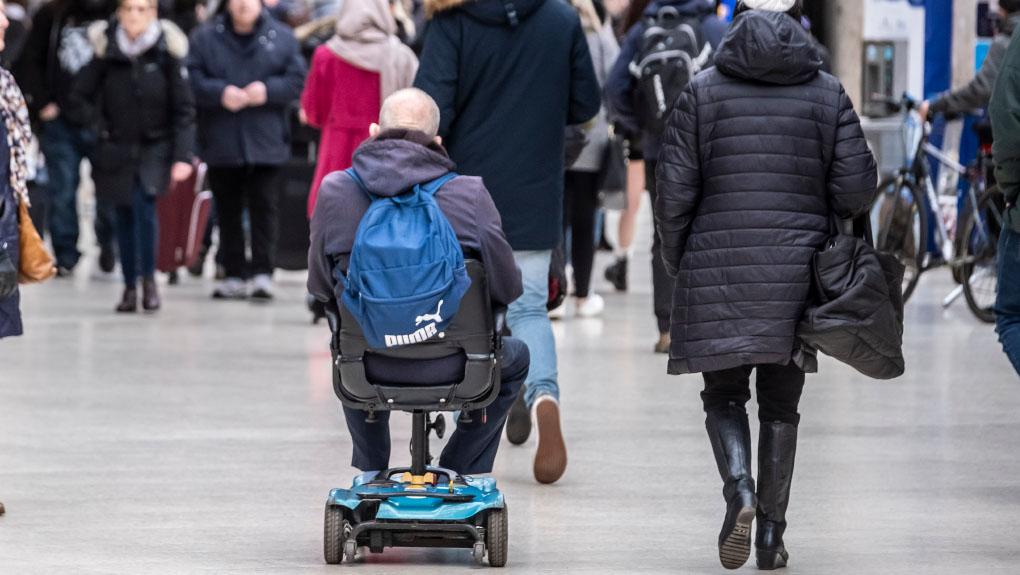Where things go wrong, we want passengers to feel confident that they will be compensated for delays, can easily complain and that their complaints will be addressed. We want operators to use learnings from all complaints to drive continuous improvement in passengers’ experiences of rail.
Improving complaints process and redress provision for disabled passengers

We have asked operators to set out how they are using insights from complaints on issues of concern to disabled passengers to drive continuous improvement.
This action follows on from the findings in our report that disabled passengers would be more likely to complain if they felt it was a worthwhile use of their time and energy and would lead to change.
Alongside, we are engaging with targeted operators to secure compliance with requirements designed to raise passengers’ awareness of redress options where booked assistance fails and ensure that complaints processes are accessible to all disabled passengers.
Case study: securing compliance with requirements to provide timely responses to complaints
We required a recovery plan from West Midland Trains (WMT), to bring them back into compliance with the obligation to respond to 95% of customer complaints within 20 working days.
We first engaged with WMT in March 2023 after their performance had dropped to processing only 18% of complaints within 20 working days, which is exceptionally poor performance.
WMT attributed their issues to increases in volumes of customer contacts related to industrial action, and an end-of-life Customer Relations Management system that they were in the process of replacing. Performance initially appeared to be recovering, however in September 2023 WMT identified inaccuracy in the data they were reporting to us.
This showed that passengers were still experiencing exceptionally slow response times and exacerbated our concerns about WMT’s performance. We formally requested a recovery plan, introduced weekly reporting, and closely monitored WMT’s progress. In line with their plan,
WMT achieved compliance in January 2024. Good performance is now being sustained.
Case study: operator good practice in demonstrating compliance with requirements to provide timely responses to complaints
We took assurance from LNER’s proactive engagement with us on complaints handling that they understood the drivers of their performance and what they needed to do to address issues.
Operators should respond to 95% of complaints within 20 working days, and report performance to us each month. We engage where performance is poor; however, best practice is for operators to proactively engage with us where they identify compliance issues.
LNER got in touch to let us know that they were expecting their performance in complaints handling to drop, explaining the reasons, the steps they would be taking to recover the position, and when they expected to be back in compliance. We continued to monitor their performance monthly through the regular reporting, ready to step in should that be necessary.
Within two months, LNER’s performance recovered to over 95% from a low of 83% complaints responded to within 20 working days.
Regulatory framework for complaints and redress
We hold operators to account against requirements set out in:
- the Delay Compensation licence condition and supporting Code of Practice that defines minimum requirements
- the Complaints Handling licence condition, which is also supported by a Code of Practice that defines minimum requirements
Our priorities for April 2024 to March 2025
We will:
- work with operators to embed the findings of our review on the experiences of disabled passengers in raising complaints
- assess the continuous improvements reports that operators are required to produce each year on their delay repay and complaints handling processes
- monitor operator performance using the data they report to us each month and our ongoing survey of passenger satisfaction with complaints handling, intervening where necessary
- continue to challenge industry to fully utilise the insight and learning that is generated from complaint handling

